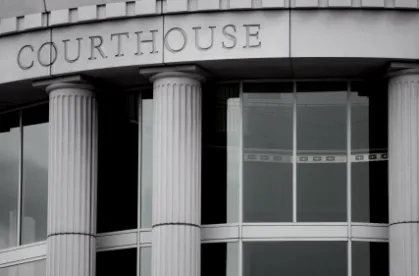Highlights from this issue include:
-
Supreme Court rules that class members who did not suffer concrete harm do not have Article III standing to sue for violation of a federal statute.
-
Supreme Court holds that generic nature of a misstatement is important evidence to show no price impact at the class certification stage, but that defendant bears the burden of persuasion to prove a lack of price impact.
-
District court in the First Circuit (D. Mass.) grants motion to strike nationwide class allegations at the pleading stage.
-
Second Circuit holds that a plaintiff cannot establish injury-in-fact sufficient to confer Article III standing where personally identifiable information was inadvertently disclosed and not yet misused by any third party.
-
Third Circuit follows majority rule that American Pipe tolling applies to plaintiffs who file individual suits before a ruling on class certification.
-
Fourth Circuit finds ERISA plaintiff established Article III standing and reverses denial of class certification.
-
District court in Fifth Circuit (N.D. Tex.) denies class certification because individual issues predominate in case alleging fraud and misrepresentation.
-
Divided Sixth Circuit panel affirms dismissal of proposed insurance coverage class action.
-
Seventh Circuit affirms summary judgment for defendant in consumer class action, finding no reasonable consumer would be materially misled by alleged misrepresentations.
-
Eighth Circuit reverses class certification, holding that plaintiff’s expert’s computer technology and algorithm cannot overcome individualized inquiry into economic loss.
-
Ninth Circuit reverses approval of class action settlement, holding that under revised Rule 23(e)(2)(C)(iii), a district court must review a proposed class settlement for unfair collusion.
-
D.C. district court permits tolling of putative class members’ claims under American Pipe because they are based on the same acts and will be proven by the same evidence as prior claims.
Third Circuit
Aly v. Valeant Pharmaceuticals International Inc, No. 19-3326, 2021 WL 2448108 (3d Cir. June 16, 2021)
Third Circuit follows majority rule that American Pipe tolling applies to plaintiffs who file individual suits prior to a ruling on class certification.
Plaintiffs filed a putative securities class action against a pharmaceutical company. Prior to a ruling on class certification, certain putative class members filed individual lawsuits. The district court dismissed the individual complaints as untimely under the two-year statute of limitations and found that American Pipe tolling did not apply to individual complaints filed before a ruling on class certification.
The Third Circuit reversed. The court recognized that while the U.S. Supreme Court had not addressed the issue, the Second, Ninth, and Tenth Circuits had held that American Pipe tolls the limitations period for individual claims filed both before and after the certification stage. Only the Sixth Circuit held otherwise, although that circuit had called that conclusion into question. The Third Circuit adopted the majority rule: “American Pipe makes clear that the filing of a class action is the operative event that tolls the limitations period, and that once the period is tolled, it remains tolled for all putative members until they are no longer part of the class. The Court has not held that anything further, such as a certification denial, is required to benefit from tolling. Like the majority of our sister circuits, we see no reason not to take the Supreme Court’s words at face value.”
The panel found that the rationale behind American Pipe was served by the ruling. While the statute of limitations is intended to prevent the “surprise” revival of old claims, that was not an issue where defendants “were undisputedly aware of the substantive claims at issue for more than two years before the Individual Complaint was filed.” Also, denying tolling would serve “no compelling purpose” because it would “lock” putative members into the class until after certification. The court concluded it made sense to allow individuals “to promptly file their individual actions, rather than indefinitely delay[ing] the resolution of those claims for no good reason.”
The panel rejected defendants’ arguments that post-American Pipe Supreme Court jurisprudence compelled a different result. While recognizing that “the Supreme Court’s recent jurisprudence tends to underscore the importance of judicial economy,” “we cannot construe the doctrine in a way that would undermine its primary purpose—to protect the individual rights of putative members.” Finally, the panel found that the district court’s decision was counterintuitive, in that individuals who filed suit earlier would be time-barred but those who filed after a class certification decision would not be.
Baskin v. P.C. Richard & Son, LLC, 246 N.J. 157 (2021)
New Jersey Supreme Court reverses motion to dismiss class action allegations, relying on lenient standard of review.
Plaintiffs filed a putative class action in New Jersey state court seeking statutory damages from retailers, based on willful noncompliance with the Fair and Accurate Credit Transactions Act (FACTA) by printing customers’ credit card or debit card expiration dates on their receipts. Defendants moved to dismiss the class allegations, and the trial court granted the motion, finding: (1) plaintiffs failed to allege numerosity because they did not specify how many members were in the class; (2) predominance was not adequately alleged because some class members may have suffered actual damages and liability would therefore have to be determined on a case-by-case basis; and (3) superiority was not adequately alleged because FACTA’s statutory award sufficiently incentivized plaintiffs to bring suit individually. The Appellate Division affirmed the dismissal, but the New Jersey Supreme Court reversed.
The New Jersey Supreme Court emphasized the procedural posture of the case and the lenient standard of review involved: on a motion to dismiss, a reviewing court must examine “the legal sufficiency of the facts alleged on the face of the complaint,” giving the plaintiff the benefit of “every reasonable inference of fact,” searching the complaint thoroughly “and with liberality to ascertain whether the fundament of a cause of action may be gleaned even from an obscure statement of claim, opportunity being given to amend if necessary.” Under that standard, the Court ruled that plaintiffs adequately pled the class action elements.
Plaintiffs adequately pled numerosity by stating that “there are, at a minimum, thousands” of members of the class. The Court rejected the lower courts’ conclusion that numerosity must be pled with specificity. Plaintiffs also adequately pled predominance because they alleged that defendants’ non-compliance was “consistent” and “the common nucleus of operative facts is, as plaintiffs pled, whether defendants programmed their equipment to print the expiration dates of customers’ credit/debit cards on receipts; the answer to that question will apply to all class members.”
Finally, the Court rejected defendants’ argument that plaintiffs failed to adequately allege superiority because plaintiffs did not explain why statutory damages, which could be recovered in small claims court, were an inadequate means to redress any FACTA violation. The Court credited plaintiffs’ allegations that “a class action is superior because individual statutory damages will be relatively small” and “even if individual litigation were brought, the class action is still superior because individual claims would ‘present the potential for varying, inconsistent or contradictory judgments.’” In so holding, the Court distinguished an earlier decision finding that small claims court was a superior forum for adjudicating TCPA claims, finding that it is more difficult to establish a FACTA claim than a TCPA claim.
The Court made clear that “we are not certifying the class.” Rather, the Court remanded “the matter for the parties to conduct discovery related to class action certification.”
Fourth Circuit
Peters v. Aetna Inc., No. 19-2085, 2021 WL 2448108 (4th Cir. June 22, 2021)
Fourth Circuit finds ERISA plaintiff established Article III standing and reverses denial of class certification.
Plaintiff filed a putative class action alleging that defendants breached their fiduciary duties under ERISA by bundling an administrative fee into the rates for health benefits. The district court denied class certification on commonality and ascertainability grounds, finding that plaintiff failed to establish that there was a class of participants who actually were harmed, and that some participants actually benefit from the challenged conduct.
The Fourth Circuit reversed. The panel first addressed plaintiff’s Article III standing, concluding that plaintiff adequately demonstrated a financial injury – i.e., plaintiff paid more on individual claims than she otherwise would have but for the challenged conduct – to establish standing under her restitution claim. But even if she could not show such an injury, plaintiff still had standing to seek a surcharge, disgorgement, and declaratory and injunctive relief.
As to class certification, the panel found that the “district court analyzed ascertainability and commonality too rigidly.” Specifically, the district court based its ascertainability conclusion on a determination that plaintiff lacked any financial injury. Yet the district court ignored the viability of plaintiff’s other remedies for surcharge, disgorgement, and declaratory and injunctive relief. Thus, the panel instructed the district court to “reexamine the ascertainability prong” based on the totality of plaintiff’s claimed remedies. Similarly, as to commonality, the panel found that the district court erroneously ignored the totality of plaintiff’s claims. Also, the panel observed that the common issues of fact as to defendant’s conduct “may be sufficient to meet the commonality requirement.”
State ex rel. Health Care Alliance, Inc. v. O’Briant, No. 20-1029, 2021 WL 2432126 (W. Va. June 15, 2021)
West Virginia Supreme Court rejects pre-certification discovery of identities of putative class members.
Plaintiff filed a putative class action against defendants in West Virginia state court, alleging they sent collection letters in violation of the West Virginia Consumer Credit and Protection Act. In pre-certification discovery, plaintiff sought the identities of all West Virginia individuals to whom defendants sent similar collection letters, as well as the name of the original creditor, account number, amount allegedly owed, and current balance. The trial court granted plaintiff’s motion to compel that information, reasoning that it “goes towards proving at the certification stage common questions of fact or law, typical claims or common defenses, i.e., ‘commonality’ and ‘typicality.’”
The West Virginia Supreme Court reversed the order compelling discovery. The Court recognized the distinction, as noted by the U.S. Supreme Court in Oppenheimer Fund, Inc. v. Sanders, 437 U.S. 340 (1978), between attempts to seek the identification of class members for purposes of class notice as opposed to other purposes. Because the request here was made pre-certification, it was not for purposes of serving class notice. The Court then analyzed whether the request sought information relevant to the class certification requirements and concluded it did not. The identity of class members was not relevant to the commonality element of the class certification test because the common issues identified in the complaint involved the conduct of defendants, not the identities or addresses of potential class members. Nor was that information relevant to the predominance analysis because plaintiff sought to certify a class of all individuals who received a letter similar to plaintiff, not “potential class members treated at a particular facility or who lived in a particular city or town,” for whom names and addresses would be relevant. Finally, while the number of individuals who received a similar letter would be relevant to the numerosity element, the identities and details regarding the debts of those individuals were not relevant to numerosity.
Accordingly, the Court concluded “that the circuit court clearly erred and exceeded its legitimate powers in compelling [defendants] to disclose at this pre-certification stage names and addresses of non-litigant, third-party individuals to whom debt collection letters were sent, dates of letters sent by [defendants], names of the original creditors, the original creditors’ account or reference numbers, the amount owed or allegedly owed and the current balance owed.”
Fifth Circuit
Miller v. Grand Canyon Univ., Civil Action No. 4:20-cv-00652-P, 2021 U.S. Dist. LEXIS 94800 (N.D. Tex. May 19, 2021)
District court denies class certification in putative fraud and RICO class action against online university because individualized issues overwhelmed the commonality and typicality inquiries under Rule 23(a) or predominance and superiority inquiries under Rule 23(b)(3).
An online graduate student and Texas resident, Miller, sued Grand Canyon University (GCU), claiming that GCU misled its students into believing that its graduate programs were accredited in each state where its students reside. On behalf of a putative class of “[a]ll Grand Canyon University students who have been enrolled in an online professional graduate degree or certificate program that is not accredited in the state where they are employed or, if not employed, where they reside,” Miller asserted claims for fraudulent omission, fraudulent misrepresentation, and unjust enrichment, and for violation of the federal RICO act, the Arizona RICO Act, and the Arizona Consumer Fraud Act.
Miller filed a motion to certify the class, and the district court denied the motion. Considering Rule 23(a)’s requirements of numerosity, commonality, typicality, and adequacy, the district court concluded that Miller had failed to establish commonality or typicality. As for commonality, the court recognized that while Miller had identified common questions that would apply to the entire putative class, she had failed to show that the class action would generate “common answers apt to drive the resolution of the litigation,” as required by the Supreme Court’s Dukes decision. The district court explained that “determining whether GCU committed fraud or misrepresentation as to Miller does not establish that GCU did so vis-à-vis every putative class member.” Further, the questions that Miller presented could not be answered from a single source. As for typicality, the court explained that the same analysis applied. Miller’s fraud claims were unique to her, and she had not established any uniform misrepresentations to the putative class as a whole. So, issues of reliance and injury would differ from person to person. Miller’s unique facts also raised defenses that would apply to her alone.
In that same vein, the court found that Miller failed to carry her burden of proving predominance and superiority under Rule 23(b)(3). Emphasizing that “a fraud class action cannot be certified when individual reliance will be an issue,” the court struggled to envision “what a trial would look like.” The court reasoned, “[v]ariations as to the degree of reliance by prospective students on statements that may or may not have been made makes class certification improper.” Moreover, “[t]he varied and individualized levels of reliance, derived from dynamic conversations, make this case improper for class certification due to the individual issues relating to reliance.” Finally, the court ruled that certification under Rule 23(b)(2) would be denied because the proper remedy for any violation was money damages, not prospective injunctive relief.
Aaron Van Nostrand, Kara E. Angeletti, Layal Bishara, Andrea N. Chidyllo, Gregory Franklin, Brian D. Straw also contributed to this article.








 />i
/>i
